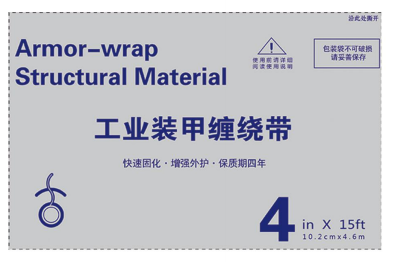Understanding Black Tape Insulation A Versatile Tool for Electrical Applications
When it comes to electrical work, safety and efficiency are paramount. One of the most commonly used materials in this field is black tape insulation, a product that has gained popularity due to its versatility and effectiveness. This article aims to explore the various aspects of black tape insulation, including its composition, applications, and advantages.
What is Black Tape Insulation?
Black tape insulation, often referred to simply as electrical tape, is a type of pressure-sensitive tape used primarily for insulating electrical wires and connections. It is made from a blend of materials, typically vinyl or plastic, which provides excellent insulation properties. The black color is not just aesthetic; it serves a functional purpose by providing UV resistance and protecting the underlying materials from exposure to sunlight, moisture, and dust.
Key Features and Benefits
1. Electrical Insulation The primary purpose of black tape insulation is to prevent electrical current from leaking out of wires and connections. This is crucial for preventing short circuits and protecting users from electrical shocks.
2. Durability Black tape is designed to withstand various environmental conditions. It is resistant to abrasion, chemicals, and extreme temperatures, making it suitable for both indoor and outdoor applications.
3. Flexibility and Ease of Use The tape can be easily stretched and wrapped around wires or connections of different shapes and sizes. This flexibility allows for a secure and snug fit, ensuring reliable insulation.
4. Conformability The tape's ability to conform to irregular shapes and surfaces allows it to be used effectively in a variety of applications, from residential electrical work to industrial setups.
5. Visibility The black color of the tape makes it easily identifiable, which can be useful when troubleshooting electrical problems or during maintenance.
black tape insulation

Common Applications
Black tape insulation is used across a wide range of industries and applications. Here are a few notable examples
- Home Wiring In residential settings, black tape is commonly used to insulate splices and connections in electrical wiring, ensuring safety and functionality.
- Automotive Industry Mechanics and automotive technicians use black tape to secure and insulate wiring harnesses and other electrical components. Its resistance to heat and chemicals makes it an ideal choice for automotive applications.
- Electronics In the world of electronics, black tape is often used to wrap wires and components to prevent short-circuits and maintain organized connections.
- Industrial Applications In factories and industrial environments, black tape insulation is used to repair and insulate damaged wiring, helping to maintain safety and operational efficiency.
Safety Considerations
While black tape insulation is a valuable tool, it’s important to use it correctly to ensure safety. Users should always ensure that the tape is suitable for the intended application, especially in high-voltage environments. Additionally, it's crucial to follow local electrical codes and regulations to maintain compliance and ensure safety.
Conclusion
Black tape insulation is an invaluable asset in electrical work, offering numerous benefits including insulation, durability, and flexibility. Whether you are a DIY enthusiast, a professional electrician, or a technician in various industries, understanding the properties and uses of black tape can enhance your ability to perform safe and effective work. As technology continues to advance, the materials and formulations used in black tape insulation may improve, further extending its range of applications and effectiveness. By recognizing its importance and adhering to safety guidelines, users can ensure that they leverage the full potential of this versatile tool in their electrical projects.
-
XIANGFAN Rubber Tape-Ultimate Solutions for All Your Insulation NeedsNewsJun.24,2025
-
XIANGFAN Rubber Tape-Protection for Industrial and Residential ApplicationsNewsJun.24,2025
-
XIANGFAN Rubber Tape: Superior Safety and Sealing for Demanding EnvironmentsNewsJun.24,2025
-
XIANGFAN Rubber Tape: Reliable Solutions for Every Electrical ChallengeNewsJun.24,2025
-
XIANGFAN Electrical & Industrial Tape: Powering Reliability Across IndustriesNewsJun.24,2025
-
XIANGFAN Electrical & Industrial Tape: Excellence in Every ApplicationNewsJun.24,2025
